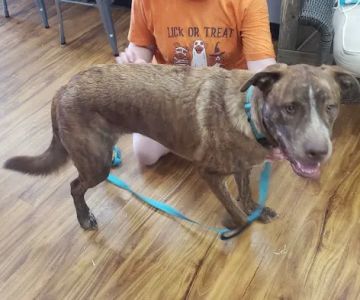Nutrition for Pets: Essential Guidelines for a Healthy Diet
As a pet owner, one of the most important decisions I’ve had to make is about my pet’s diet. Just like humans, pets need a balanced and nutritious diet to stay healthy and live long, active lives. Over the years, I’ve learned that providing the right nutrients for my pets is not just about filling their bowls with food—it’s about understanding their dietary needs and making informed decisions about what goes into their meals. In this article, I’ll share essential guidelines for feeding your pets and provide some insights based on my experiences with different pets and their dietary preferences.
1. Understanding Your Pet’s Nutritional Needs
When I first started learning about pet nutrition, I quickly realized that the needs of pets can vary significantly depending on their species, age, activity level, and health status. For example, my dog requires more protein to support muscle growth and energy levels, while my cat, as a carnivore, thrives on a meat-based diet. I also learned that pets, like humans, need a balanced mix of protein, fats, carbohydrates, vitamins, and minerals to function at their best.
It’s essential to consider these factors when selecting food for your pet. For instance, puppies and kittens have different nutritional needs than adult or senior pets, and active or working dogs require more calories and protein. I’ve found that understanding these nuances helped me choose the right foods and ensure that my pets get the proper nutrition they need at each stage of their lives.
2. Key Nutrients for Pet Health
There are several key nutrients that I always make sure to include in my pets’ diets, as they contribute directly to their overall health. These nutrients help to maintain strong bones, healthy skin, a shiny coat, and optimal immune function. Here’s a breakdown of the essential nutrients for pets:
2.1. Protein
Protein is one of the most critical nutrients for pets, especially for dogs and cats. I’ve learned that protein helps build and repair tissues, supports immune function, and provides the energy my pets need for daily activities. When choosing pet food, I always look for a high-quality source of protein, such as chicken, beef, or fish. For my cat, a diet rich in animal-based protein is especially important to keep her muscles strong and her metabolism running smoothly.
2.2. Fats
Fats are another essential nutrient for pets. I used to overlook fats in pet food, thinking they were just empty calories, but I quickly learned that fats are necessary for maintaining healthy skin and a shiny coat. Additionally, fats provide essential fatty acids like omega-3 and omega-6, which promote heart health and reduce inflammation. I make sure that the pet food I choose contains a healthy balance of fats, especially for my dog, who benefits from omega-3 fatty acids to support joint health.
2.3. Carbohydrates
Carbohydrates are an important source of energy for pets, and I learned that they help in digestion and provide essential fiber for gut health. While cats are obligate carnivores and need fewer carbs in their diet, dogs can benefit from moderate amounts of carbohydrates. I choose pet foods that contain wholesome grains like brown rice or sweet potatoes, which provide slow-burning energy and are gentle on the digestive system.
2.4. Vitamins and Minerals
Vitamins and minerals are essential for pets to maintain their overall health. For example, calcium is crucial for strong bones and teeth, while vitamin A supports vision and immune health. Over the years, I’ve learned to choose pet foods that provide a well-rounded mix of vitamins and minerals, ensuring my pets get everything they need for their well-being. Supplements can also be beneficial for pets with specific health concerns, and I’ve worked with my veterinarian to ensure my pets are getting the right supplementation when necessary.
3. Choosing the Right Pet Food
Choosing the right food for your pet can feel overwhelming, especially with so many options available on the market. I remember feeling confused by all the labels and marketing claims when I first started shopping for pet food. However, over time, I learned to prioritize quality ingredients and choose foods that cater to my pets’ specific needs. Here’s what I consider when choosing food for my pets:
3.1. Look for High-Quality Protein Sources
When it comes to pet food, I always prioritize high-quality protein sources, as protein is one of the most important nutrients. I avoid foods that list fillers like corn or soy as the main ingredients and instead focus on brands that use named animal proteins like chicken, turkey, or lamb. This ensures that my pets are getting the right nutrients to support their growth and energy needs.
3.2. Avoid Artificial Additives
Over the years, I’ve learned to avoid pet foods that contain artificial colors, flavors, or preservatives. These additives can be harmful to my pets’ health and can cause digestive issues or allergic reactions. I always check the ingredient list and try to choose natural, whole-food ingredients that will nourish my pets without the added chemicals.
3.3. Tailor the Diet to Your Pet’s Needs
Each pet has unique dietary needs, so I always choose food that’s specifically formulated for my pet’s age, breed, and activity level. For example, puppies require food that supports their growth and development, while senior dogs may need a diet that’s lower in calories but higher in joint-supporting nutrients. I’ve found that tailoring my pet’s diet to their specific needs helps ensure they stay healthy and happy.
4. Establishing Healthy Feeding Habits
In addition to choosing the right food, I’ve learned that establishing healthy feeding habits is just as important. Here are some tips I follow to keep my pets at a healthy weight and ensure they’re getting the most out of their meals:
4.1. Stick to Regular Feeding Schedules
Just like with humans, routine is important for pets. I’ve found that sticking to a regular feeding schedule helps regulate their digestion and ensures they get the right amount of food. I typically feed my dog twice a day—once in the morning and once in the evening—and give my cat multiple smaller meals throughout the day to keep her energy levels stable.
4.2. Measure Portion Sizes
It’s easy to overfeed pets, especially when they look at you with those adorable eyes. However, I’ve learned that portion control is crucial for maintaining a healthy weight. I always follow the feeding guidelines on the pet food packaging and use a measuring cup to avoid overfeeding. This helps prevent obesity and ensures that my pets get the right amount of nutrients.
4.3. Fresh Water Is Essential
One of the most important aspects of pet care that I can’t overlook is fresh water. I always make sure that my pets have access to clean, fresh water throughout the day. Staying hydrated is essential for digestion, kidney function, and overall health. I also make sure to clean their water bowls regularly to prevent bacterial growth.
5. Regular Veterinary Checkups
Finally, one of the best ways to ensure that my pets are getting the right nutrition is by scheduling regular veterinary checkups. My veterinarian provides valuable guidance on adjusting my pet’s diet based on their health status. Whether it’s a change in activity levels, weight concerns, or a new health condition, a vet’s input is crucial for maintaining a healthy diet tailored to my pet’s needs.
6. Conclusion: A Healthy Diet for a Happy Pet
Providing proper nutrition for your pet is one of the most important steps you can take to ensure they live a long, healthy, and active life. By choosing high-quality food, understanding their nutritional needs, and establishing healthy feeding habits, you’re setting your pet up for success. It’s a journey of trial and error, but the rewards are well worth it when you see your pet thriving.
If you’re looking for expert advice on pet nutrition and care, visit Hidden Brook Veterinary for resources and services tailored to your pet’s health.











